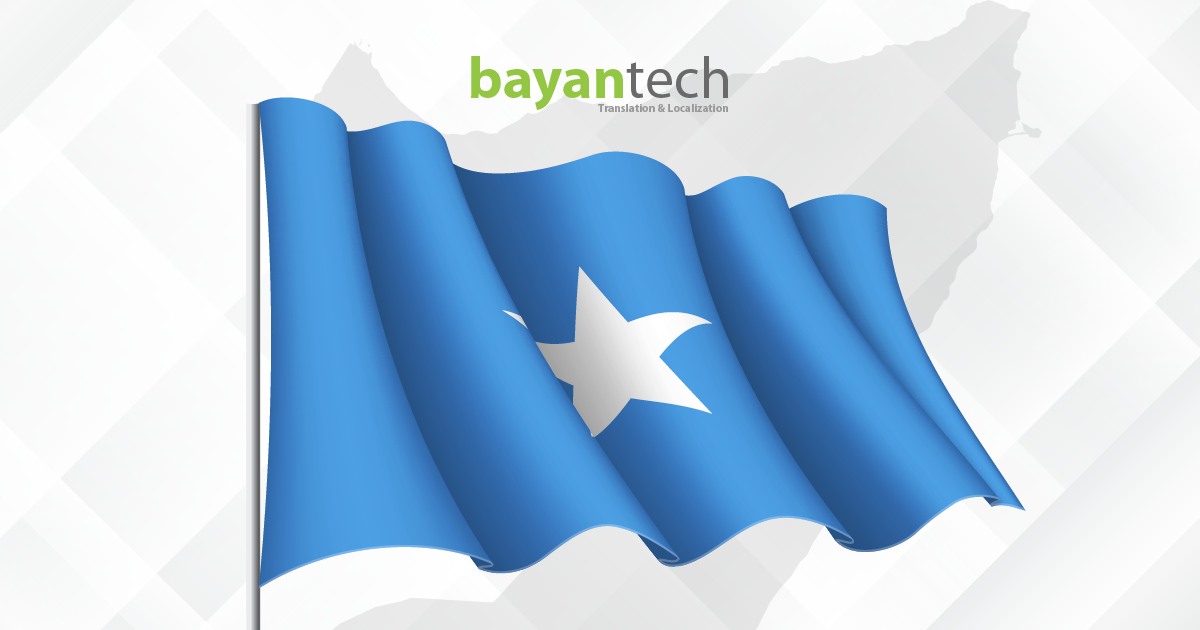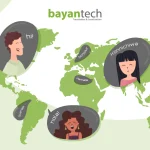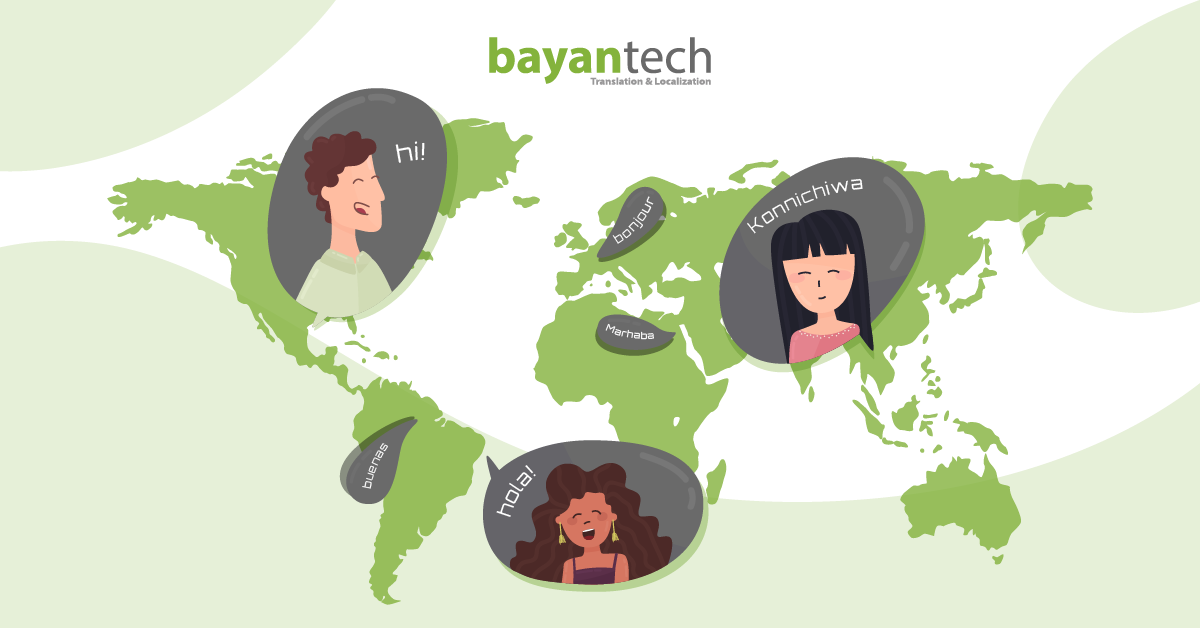While Arabic and Somali are the two official languages spoken in Somalia, different dialects and indigenous languages are also spoken within smaller communities. Each dialect and language is prominent in specific regions of Somalia. So, let’s break down the languages spoken by the Somali people both in Somalia and around the world.
Official Languages of Somalia
Somali
Somali is the primary official language of Somalia and has three main dialects:
- Af-Maxaa (or northern Somali), spoken in the northern region,
- Benadiri, spoken along the coastal areas,
- Af-Maay (or Maay Maay), spoken in the southern and central regions.
The standard Somali dialect and the country’s lingua franca is the northern dialect. While these dialects share common linguistic features, mutual intelligibility varies, with Maay being less comprehensible to speakers of Northern Somali.
Historically, Somali was written using the Arabic script. However, in the 1970s, a Latin-based alphabet was officially adopted for the Somali language. This script, excluding the letters p, v, and z, remains the standard writing system for Somali today.
Arabic
Arabic is Somalia’s second official language and is primarily used in religious contexts, as over 99% of the population is Sunni Muslim. As a member of the Arab League, Somalia also shares strong cultural and historical ties with the Arab world.
Indigenous and Minority Languages in Somalia
Indigenous Languages in Somalia
Somali is the indigenous language of the Somali people and belongs to the Cushitic branch of the Afroasiatic language family.
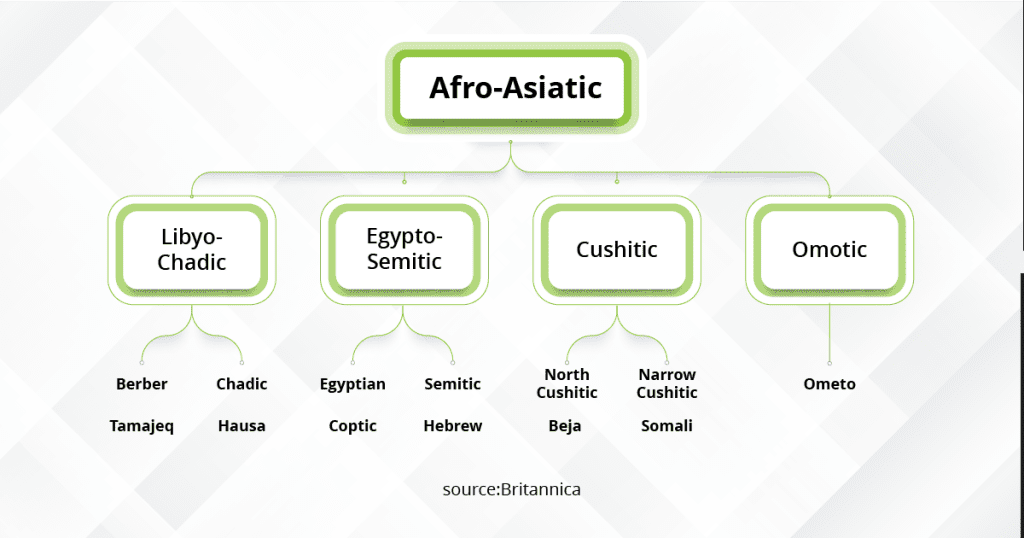
The Maay Maay language, often considered a distinct Cushitic language, is spoken by the Digil and Mirifle (Rahanweyn) clans. Compared to Standard Somali, Maay Maay differs significantly in grammar, vocabulary, and pronunciation.
Swahili Dialects in Somalia
– Bravanese (Chimwiini)
The name “Chimwiini” comes from “Chi-” meaning “language” and “mwiini,” which refers to the Barawa region where Bravanese is spoken. This dialect is considered endangered due to the dispersal of the Bravanese people worldwide following the Somali civil war.
– Kibajuni
Kibajuni is another widely spoken Swahili dialect in Somalia, particularly along the southern coast.
Mushunguli and Somali Sign Language
Mushunguli is a dialect of the Zigula language, spoken in both Somalia and Tanzania. It belongs to the Bantu language family, which is spoken by various African ethnic groups across the continent.
Somali Sign Language (SSL) was first introduced with the establishment of a school for the deaf in 1997. Despite political and economic challenges that have hindered education for many, particularly the deaf community, the sense of nationhood across Somaliland, spanning from Kenya to Ethiopia, has been a driving force in the development and spread of SSL.
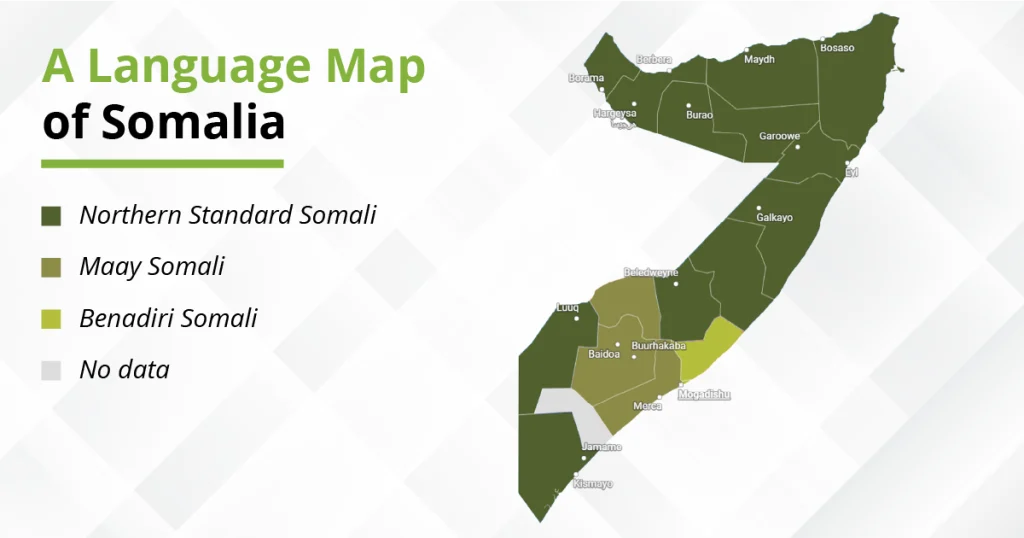
The Connection between Language and Culture in Somalia
Despite decades of turmoil and instability, Somali culture remains rich and vibrant, particularly known for its proverbs and poetry. Somali poets have often used their language as a tool for resistance and as a means of expressing pride in their heritage.
Somali poet Gaariye, when reflecting on the civil war and the state of his country, expressed his thoughts in the following lines:
Dal waxaan ku noolahay,
Saddexdii dalaaqood,
Lagu furay dadnimadii!
This translates to: “I live in a country where ethnicity was divorced three times,” a powerful use of metaphorical language that reflects the poet’s deep connection to his religious and cultural background.
The beauty of the Somali language also shows in its proverbs. One proverb says, “Ninkii walaalkii hog u qoda, isagaa ku dhaca,” which translates to “The man who digs a pit for his brother falls into it himself.”
Another powerful proverb, “Hadal oday been ma aha,” means “The speech of an elder is no lie,” reflecting the deep respect for elders and their wisdom in Somali culture.
Professional Somali Language Translation: An Investment Worthwhile
Given the rich and complex cultural background of the Somali language, professional translation services are essential to convey the right message with the appropriate tone. Services like Arabic-to-Somali localization, provided by a professional LSP (Language Service Provider) using advanced translation tools, ensure the accurate translation you need.
Whether you need Somali translation services for website localization or document translation, professional language solutions will help your message resonate with your target audience.
Most Common Questions Asked about Languages Spoken in Somalia
1- What are the official languages of Somalia?
Somali and Arabic are the official languages of Somalia. Somali is used in everyday life and official contexts, while the role of Arabic in Somalia is primarily seen in religious contexts.
2- What are the main Somali dialects?
There are three main Somali dialects: Northern Somali (Af-Maxaa), Maay Maay (Af-Maay), and Benadir Somali.
3- What are the minority languages in Somalia?
Bravanese, Kibajuni, and Mushunguli are minority languages spoken by various communities in Somalia.
4- How can businesses localize content for Somali audiences?
Businesses can successfully localize their content for Somali audiences by utilizing professional Somali translation services that guarantee both cultural relevance and linguistic accuracy.
Connect with Somali People through Professional Translation
Professionals in diplomacy or business can truly connect with the Somali nation and its diaspora by speaking their language. bayantech’s team of expert translators will help tailor your message for your target audience, ensuring linguistic accuracy and culturally sensitive translation, reflecting the diverse languages spoken in Somalia.
Click here to get a free quote before starting your project!

